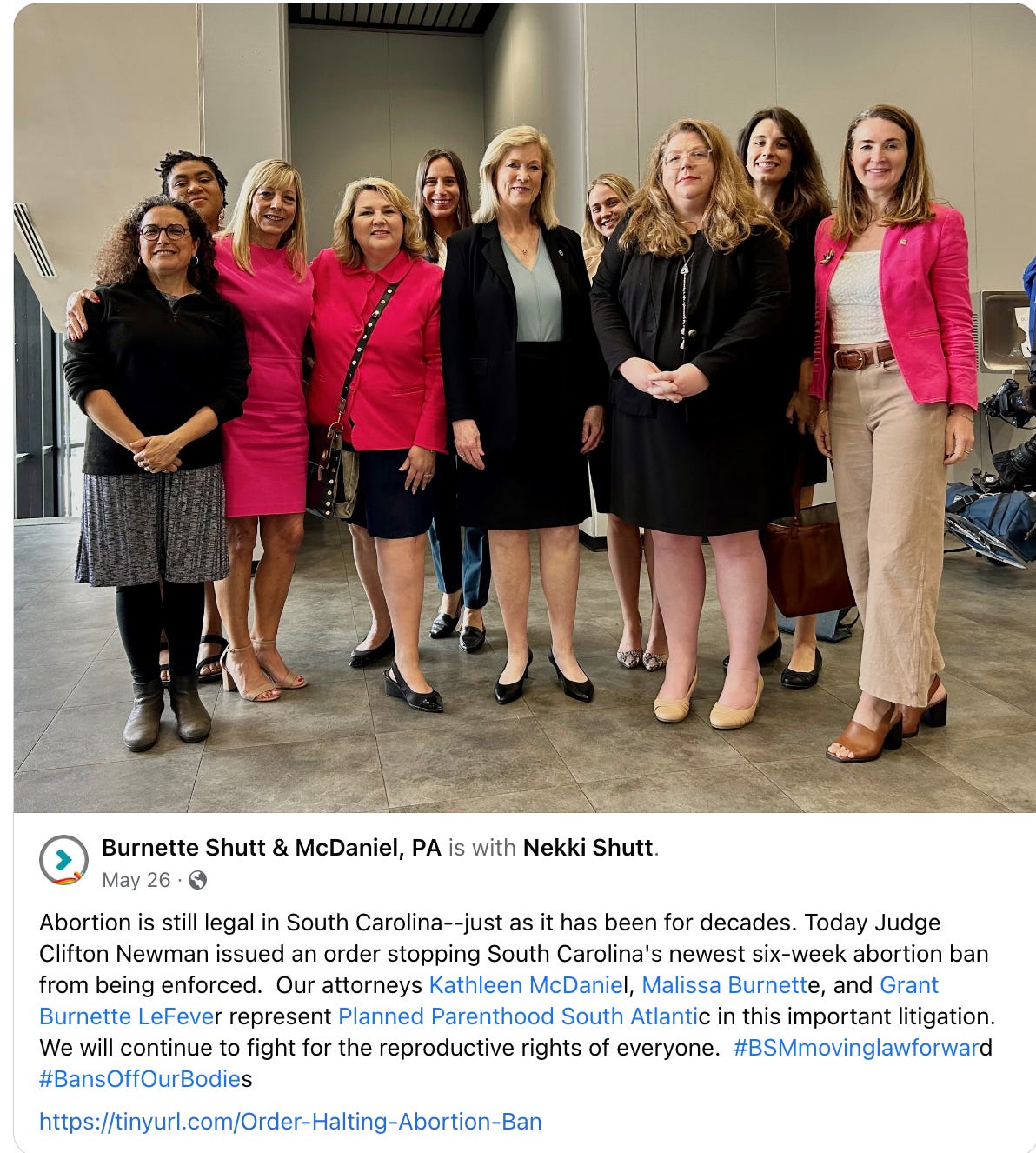I couldn’t write the one-year fall of Roe newsletter on Friday, because Alex had a day off from summer camp, and my mom needed a ride to an appointment. It turned into a lovely day in Greenwood, having burgers at the Garden Grill and exploring the Ninety Six historical site. Alex got his junior ranger badge, and my mom told me about a PBS documentary we should all watch called Mama Bears, about evangelical moms of LGBTQ kids who renounce the hate of their religious communities to protect their children. (Also a kudos to the City of Greenville for posting a story about our Pride!)
Honestly it was a much-needed day off from working on the book project, or my summer class syllabi, or trying to keep up with the housework, yard work or meal planning. We also had the fun tasks of planning and setting up Alex’s seventh birthday party, which we did on Saturday. I did the best I could to keep from having flashbacks to the deep sense of loss and grief I felt through his sixth birthday party last year, which came a day after Roe fell. It was a comfort then to realize some of the other moms at the party were feeling the same way, although we referred to it in code and in hushed conversations.
Since then, I’ve been so encouraged at how many people actually support abortion rights, and the many public conversations I’ve had about it. Poll after poll show us that the majority of Americans support these rights, especially young people. It turns out that stripping half of the population of constitutional rights has dramatic effects on elections, with shocking results out of deep red states like Kansas and Kentucky. While there is a group of extremists, something like 13% percent, that are in favor of a national ban on abortion, most people agree that we should have access. I recommend
's newsletter for more stats and an overview of the last year, as well as PBS Newshour’s coverage.Aside from the religious zealots and patriarchal forced birthers who are willing to kill women to enforce their norms on the rest of us, it seems to me that people who remain anti-abortion or pro-ban also just don’t understand the medical and legal complexities of trying to restrict abortion through the power of the state. I’m grateful for the continued press coverage, and overall national and local media seems to be doing a better job than I ever thought it would. But you should still read
by Jessica Valenti, because even under Roe we had gross miscarriages of reproductive justice, and going back to that standard is not the way forward, which mainstream coverage doesn’t fully grasp.I also hope the last year has been one of reflection, because the conditions that have led us here have been in place for a long time. We need all the tools that an intersectional feminist approach can lend us (no coincidence that DeSantis and his minions are going after gender studies so vehemently). Abortion bans highlight the injustice that already exists: that having children in America guarantees most women will struggle financially, that racial disparities in medical treatment create maternal and infant mortality rates that are much higher for Black women and other women of color, that women already can’t run for office, run companies, run the world because they alone are solely responsible for the care work and survival of their families.
These conditions were already there last summer, and they continue. Debating abortion bans can sometimes take all of the spotlight, but we have to keep fighting these structural realities if we want real change. Malissa Burnette and her team continue their legal fight tomorrow (June 27th), when they begin oral arguments at the South Carolina Supreme Court to overturn the most recent ban (nearly identical to the one the Court already threw out). I remain cautiously optimistic the all-male Supreme Court will uphold the precedent of the January ruling and will throw out the most recent law. In the meantime, send money if you can to direct-aid organizations and abortion funds like our local Palmetto State Abortion Fund, who are helping women from across the region access care they can’t get in their own states.
We’re doing it, y’all. This last year I have felt a very deep, multigenerational women-have-had-enough type of vibe. I get to see Beyoncé this summer, and we can all channel this as aspirational for 2024:





